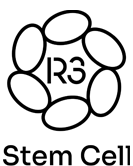Safety
Donor natural killer (NK) cell immunotherapy, also known as allogeneic NK cell therapy, has shown promise in treating cancer. The safety profile at R3 has been very high, here’s an overview.
Advantages That Enhance Safety
Reduced Risk of Graft-versus-Host Disease (GVHD)
Unlike T cells, NK cells are MUCH less likely to attack healthy tissues in the recipient, making GVHD a very rare complication in NK cell therapy.
Short Lifespan of NK Cells
NK cells generally do not persist long-term in the body (about 3 weeks), which can minimize the risk of overactive immune responses.
Target-Specific Killing
NK cells selectively attack cells with stress markers or reduced MHC-I expression, reducing collateral damage to normal cells.
Side effects that may be seen include a low grade fever, dizziness, chills, or headache. These typically resolve quickly.
Potential Risks
Infection Risk
Preparative regimens (e.g., chemotherapy or immunosuppressants) used to create space for donor NK cells can temporarily weaken the patient’s immune system, increasing susceptibility to infections.
Tumor Escape Mechanisms
Tumors may adapt by increasing inhibitory signals to evade NK cell attack, potentially leading to incomplete treatment and recurrence. This is why R3 Stem Cell recommends combining NK Cell immunotherapy with traditional cancer treatments.
Patients undergoing NK cell therapy are closely monitored for side effects, allowing for prompt management of any adverse events.
Clinical Trial Evidence
Studies and clinical trials have shown that donor NK cell therapy is generally well-tolerated. For example:
Leukemia and Lymphoma
Donor NK cells have been successfully used to treat blood cancers, with minimal severe side effects.
Solid Tumors
Trials for solid tumors show promising results, and NK cells may be directly injected into solid tumors.
Conclusion
Donor NK cell immunotherapy is considered relatively safe, especially compared to other immunotherapies like CAR-T cells. While it has potential risks, advancements in genetic engineering, better donor selection, and improved therapeutic protocols are continuously improving its safety and efficacy. If you’re considering this therapy, a detailed consultation with R3’s immunotherapy specialist is crucial to understand the specific risks and benefits in your case.
